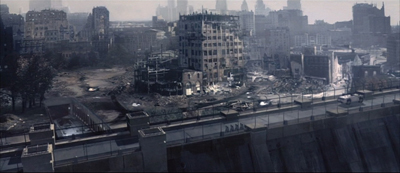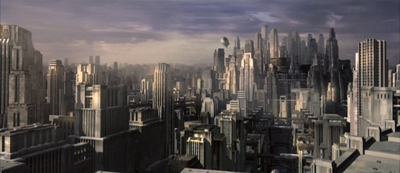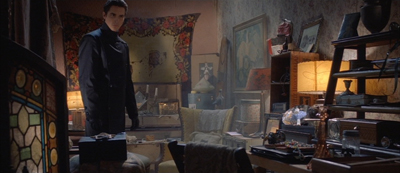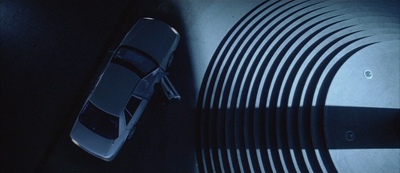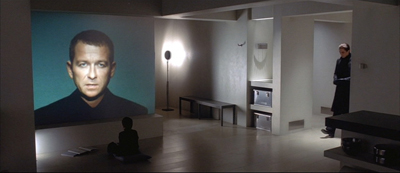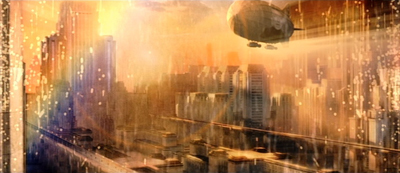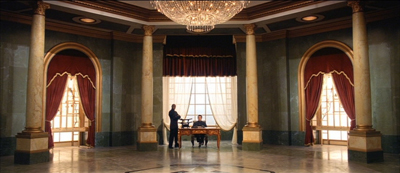



|
|
Kurt Wimmer's dystopic vision of the future in "Equilibrium" portrays a world that has been destroyed by the ravages of the Third World War. The pre-war civilizations and their architecture have been either wiped off the face of the map or left in ruins that no one seems willing to restore. It seems that totally new buildings have been constructed while the old cities and infrastructures have been left to crumble and decay, inhabited only by those who refuse to embrace the rules and strictures of the new totalitarian government, which drugs the populace into submission and ruthlessly exterminates the faintest expression of emotion and "sense-crime". Nearly all vestiges of the old civilizations, from their art and architecture to their music, are either systematically eradicated or left to decay. A strict barrier is maintained between the ruins left by the war and the pristine new city of Libria, which seems to have been built almost entirely after the war due to the fact that its architecture all the same style. The submissive populace remains placidly within the walls of their grand but austere city and only the armed forces venture out into the ruins to hunt down subversives, deviants, and their hidden stashes of emotion-inducing artifacts. Mary O'Brien's apartment has the white unornamented walls mandated by the state, but hidden behind one of these walls is a pre-war room clad with figured wallpaper and containing treasured artifacts, indicating that some of the buildings in Libria are pre-war structures that have been re-clad to match the neo-classical/Modernist architectural ideals of the new state. Many of the buildings are constructed on such a megalithic scale that they could not possibly have been built by anything less than a totalitarian government which could only have gained power through taking advantage of the desperation of a populace terrified by an unprecedented war. On the off-chance that the grand architecture of Libria might inspire emotion among the populace, the apartment windows are coated with translucent paper so that no one can be moved by the sight of the rising sun. It seems that the hidden agenda of the totalitarian state (the Tetragrammaton) is to reserve the sensation of feeling and emotion for the ruler, Dupont. It seems that he is the only one for whom the grand architecture of Libria exists. No one else is allowed to experience it. All the architecture of Libria is grand and even epic in scale, but austere. Lack of ornamentation has itself become a form of ornamentation. The attention to detailing perfectly square corners, unbroken flat surfaces, and perfect geometric shapes has somehow become considered an architectural style which does not arouse emotion. |




